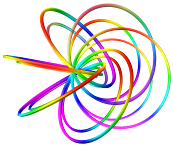

|
Conference Thematics |
|
The communications to SYMCOMP2019 should be submitted under the broad thematic areas highlighted in the main objectives of this Conference. Therefore, without excluding other areas/themes not explicitly referred, some suggestions can be considered for the thematic session’s proposals: Integrated numerical/symbolic computation, integrated graphical/analytical computation, graphical computation, symbolic computation and didactical tools, modeling and optimization, image processing, e-science and technology, evolutionary algorithms, computational intelligence, fuzzy systems, systems identification and control, .. In a broad sense, this Conference is devoted to the developments and applications of numerical and symbolic computation in Engineering, in Architecture, in Economics, in Statistics, in Physics, in Management, in Mathematics, in Education,…..
Plenary Lectures Professor Stéphane Bordas (Computational Mechanics), University of Luxembourg Advances in Geometry Independent Approximations Professor José E. Roman (Computational Mathematics) , Universitat Politècnica de València Parallel solution of large-scale linear and nonlinear eigenvalue problems with SLEPc
Thematic Sessions Thematic Session’s Organizers are expected to invite participants and to promote the announcement of the Conference. A Thematic Session is constituted by five (5) communications .
|


|
Thematic Conference |
SYMCOMP 2019 |
|
4th International Conference on Numerical and Symbolic Computation Developments and Applications |
|
Porto, Portugal, 11-12 April 2019 |

|
Organizers |
Session |
Session ID |
|
J. BELINHA (INEGI, ISEP-IPP) R.M. NATAL JORGE (INEGI, FEUP) |
ADVANCES IN MESHLESS IN COMPUTATIONAL MECHANICS AND BIOMECHANICS |
1 |
|
Rui Borges Lopes (DEGEIT-UA, CIDMA) Eliana Oliveira da Costa e Silva (ESTG-IPP,CIICESI) |
Computation in Industrial Engineering and Management |
2 |
|
Zélia Rocha (CMUP, FCUP) Ângela Macedo (CMAT-Polo UTAD, UTAD) |
Orthogonal Polynomials, Special Functions and Symbolic Computations |
3 |
|
Alda Carvalho (GIMOSM-ISEL, CEMAPRE) Ana Martins , Cláudia Casaca (CIMOSM-ISEL) Daniel Vaz (UNIDEMI, FCT/UNL) Tiago Silva (UNIDEMI, FCT/UNL, CIMOSM-ISEL) |
4 |
|
|
José Matos (ISEP, CMUP) |
5 |
|
|
Óscar Afonso (FEP, CEFUP) |
6 |
|
|
Luís Miguel Durão (CIDEM—Centro de Investigação e Desenvolvimento em Engenharia Mecânica / ISEP-IPPP) João Manuel R. S. Tavares (FEUP-UP; Department of Mechanics) |
Applications of computational vision on non destructive evaluation |
7 |
|
Sílvia Barbeiro (CMUC/FCTUC-UC ; Department of Mathematics) |
Mathematical methods in biomedical imaging |
8 |
|
Fernando Fontes (SYSTEC|ISR , FEUP|UP) Sofia Lopes (SYSTEC|ISR , CFIS|UMINHO) Amélia Caldeira (SYSTEC|ISR, LEMA|ISEP-IPP) |
9 |
|
|
Elza M. M. Fonseca (INEGI, ISEP/IPP) Paulo A. G. Piloto (INEGI, IPB) |
10 |
|
|
Ana C. Conceição (FCT-UAlg, CEAFEL) Paula V. Martins (FCT-UAlg, CIEO) Jorge Andraz (FE-UAlg, CEFAGE) |
Numerical and Symbolic Computation in Mathematics, Finance and Economics |
11 |
|
Krassimir Atanassov (Institute of Biophysics and Biomedical Engineering, Bulgarian Academy of Sciences, Sofia, Bulgaria) Evdokia Sotirova (Intelligent Systems Laboratory, University “Prof. Dr. Asen Zlatarov”,Burgas, Bulgaria) Olympia Roeva (Institute of Biophysics and Biomedical Engineering, Bulgarian Academy of Sciences, Sofia, Bulgaria)
|
12 |
|
|
Antonio J. Tallón-Ballesteros (University of Huelva, Spain) Simon Fong (University of Macau, China) |
13 |